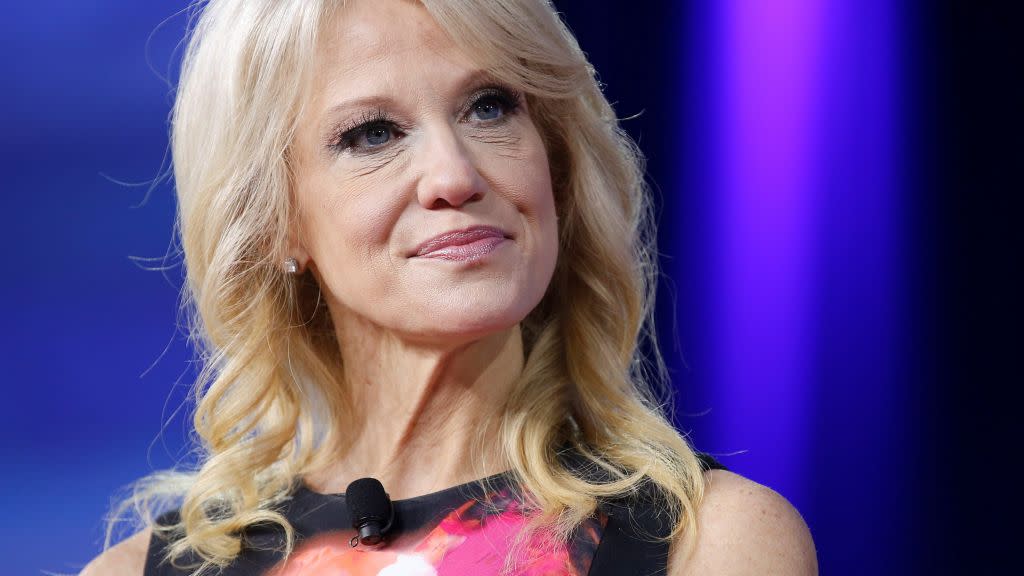It’s time to stop letting so-called “experts” comment on subjects they know nothing about

People who care about truth and facts are up against a lot of challenges these days, from fake news to filter bubbles. But there’s another big problem we can’t ignore: The rise of the pseudo-experts who dominate our airwaves and social networks, offering opinions on subjects they know little to nothing about.
To understand the issue, consider the old toothpaste slogan: “Four out of five dentists recommend Colgate.” If you take this claim at face value, it makes sense. Why not survey dentists about toothpaste? They are, after all, in charge of dental care and your overall oral health.
But pause and think about your own experiences in the dentist’s office. I’ve never had a dentist ask me what toothpaste I use. And there are usually other patients in the adjacent rooms, and I’ve never heard him ask any of them what toothpaste they use. That’s because dentists aren’t the right experts to consult on toothpaste. They don’t spend their time comparing different brands. The right person would be a medical researcher who has done a clinical trial randomly assigning different toothpaste brands to different people, then tracks their oral health over the next few years to see which toothpaste leads to better outcomes.
And so the dentists in this case are pseudo-experts, who nonetheless answered Colgate’s survey, allowing the toothpaste company to circulate misinformation. And it’s not just dentists who are guilty of making this mistake: people from climate-change deniers to expert witnesses in criminal cases are distorting the public’s understanding of science and policy.
The problem of pseudo-experts is not new. Consider William Shockley, who won the Nobel Prize in physics in 1956 for co-inventing the transistor. Shockley also held deeply offensive and racist views about the mental inferiority of blacks. He had no training in genetics or in intelligence assessment. But his background in physics gave his views the aura of authority. “Gee, he’s got a Nobel prize in physics,” people said to themselves. “Physics is really hard. He must be really smart!” The same issue arose with Charles Murray, the political scientist and sociologist—emphatically not a geneticist—who famously promoted offensive views on racial intelligence in his 1994 book The Bell Curve and elsewhere.
Expertise in a given field is narrow, and is not interchangeable with expertise in another realm. Yet because we tend to respect people who are experts in their field, we can be all too willing to believe them when they step outside their area of knowledge. You’ve probably heard of the Mozart effect, for example, the claim that listening to the music of Mozart for just 20 minutes a day will make you smarter. This report even led the governor of Georgia to allocate state funds to buy a Mozart CD for every newborn in the state.
But this claim has been thoroughly debunked. The original experiment that identified the effect was poorly designed, and the results have never been replicated, in spite of dozens of attempts. The lead author on the original Mozart paper? Gordon Shaw, a physicist, stepping outside his domain of expertise.
In this case, there was little harm done. But the consequences of allowing pseudo-experts to hold forth and pontificate about things outside their domain can be devastating. Take Sally Clark, a British woman who was accused of murdering her own infant. Unfortunately, her previous infant had also died at home. Prosecutors brought as an expert witness a pediatrician, who testified that the probability of two infants dying of natural or medical causes at home was extremely unlikely (just one in 73 million). Logic suggested that Clark must have murdered her children.
But Clark’s attorney never should have allowed the pediatrician to stand in as an expert. Why not? Infant mortality is, thankfully, relatively rare. A typical pediatrician may never see an infant death in the course of his or her lifetime. If you’re looking for an expert on infant mortality, you want someone who has seen lots of them: a medical examiner, coroner, or epidemiologist who specializes in infant deaths. Clark was eventually exonerated based on microbiological evidence that proved her innocence. But she had already served three years in prison.
Scientists like myself are partly to blame here. When one of our own goes on TV or in front of the press and starts making false claims, we don’t stand up and denounce them. We figure it’s not our personal problem. But it is. In this age of overwhelming untruth, pseudo-expertise is a problem that has to become every individual’s responsibility.
Nowhere is this more clear than among the climate-change deniers—almost entirely pseudo-experts—who contradict ample scientific evidence and lend support to devastating public policies. The list of leading climate-change deniers includes Denis Rancourt, who holds a PhD in physics and is an expert in magnetic field theory; Freeman Dyson, another physicist; Harrison Schmitt, a geologist; and Myron Ebell, who has a master’s in political theory and no advanced research degree. What about the people who hold PhD’s in—you know—climate science? Among this group, according to a number of studies published in peer-reviewed journals, 97% agree or more that climate change is real and man-made.
It has been said that we are living in the post-truth era. But we don’t have to give up on the truth. Just as we wouldn’t let an optometrist perform open-heart surgery on us, we shouldn’t be influenced by pseudo-experts who weigh in on issues when they have no business doing so. It’s time to raise the bar on who we are willing to listen to.
Daniel J. Levitin is the author of Weaponized Lies: How to Think Critically in the Post-Truth Era. Learn how to write for Quartz Ideas. We welcome your comments at ideas@qz.com.

Sign up for the Quartz Daily Brief, our free daily newsletter with the world’s most important and interesting news.
More stories from Quartz:

 Yahoo News
Yahoo News 
